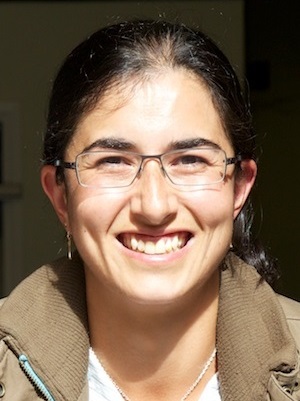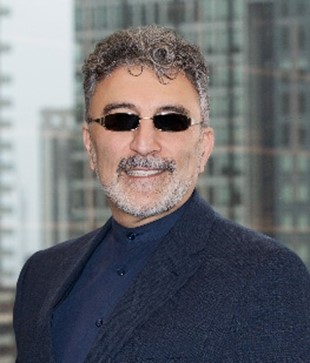Professor Emma Robinson

Speaker: Professor of Psychopharmacology, University of Bristol
Biography: Emma completed her BSc(Hons) and PhD in at the University of Bristol. She was awarded an RCUK Academic Fellowship in 2006 and worked at the University of Cambridge before returning to Bristol to establish her independent research group.
Now based in Bristol’s School of Psychology and Neuroscience, Emma’s research investigates the mechanisms which regulate normal and pathological cognitive and emotional behaviour. Her work is particularly interested in developing new behavioural approaches to explore the relationship between psychological and experience-dependent mechanisms which contribute to the development and treatment of mood disorders. Complementing the psychopharmacology research, the group runs a programme in animal welfare and research integrity from which the 3Hs (Housing, Handling, Habituation) framework and initiative emerged.
Abstract: There are many challenges facing neuroscience researchers when using pharmacological manipulations in animal models and deciding on what is an ‘appropriate dose’. It is generally acknowledged that studies in animals require an adjustment to the human clinical dose to reflect species differences in the pharmacokinetics of the drugs. However, in a recent systematic review of the literature relating to antidepressant drugs and their use in rodent models, we found a wide range of doses being used and often doses which were >10 times greater than would be used in the clinic. These higher doses tend to also use routes of administration e.g. intraperitoneal, which achieve higher acute plasma concentrations than the oral route more commonly found clinically. Most publications referred to previous literature to justify their dose selection and tested only a single dose in their model. This widespread practice in neuroscience research poses significant challenges for translational research particularly when these drugs are being used to ask questions about underlying mechanisms. In this talk I will consider current practises in fundamental neuroscience research and why poor dose selection may limit the translational relevance of the mechanisms and novel drug targets identified. I will also discuss whether the lack of development of more clinically relevant behavioural readouts for preclinical psychiatry is compounding the issues, and the importance of considering the pharmacokinetic and pharmacodynamics of the drug in both the study design and data interpretation.
Professor Amin Rostami-Hodjegan

Speaker: Professor of Systems Pharmacology and Director of Centre for Applied Pharmacokinetic Research, The University of Manchester
Biography: Professor Amin Rostami is an internationally recognised scientist and renowned thought leader in the area of translational modelling for drug development and precision dosing. He is recognised by many as a dynamic individual who has contributed to science education and business development equally. He has progressed through the ranks of Lecturer through Reader before becoming the first professor with the title of “Systems Pharmacology” in the world (University of Sheffield, 2007). In parallel, he has gathered his business and management acumen by serving on the board of directors of Simcyp (2002-2012) and the Certara Executive Team as Chief Scientific Officer (2014-current).
Abstract: There’s no magic fix that will eliminate animal testing at the push of a button. However, the so called “New Approach Methodologies (NAMs)” provide the tools towards a significant optimization in utilizing animal experiments.
Model-informed drug development (MIDD) is a general umbrella for integration of various pieces of information on systems (various organs and tissues in various species of animals and human) with drug-related data obtained in the lab (2D/3D cultures as well as Organ-on-Chip) to help select better drug candidates enter clinical investigation stage. These cover safety aspects (avoiding serious harm to patients) as well as potential therapeutic effects. Physiologically-based pharmacokinetics (PBPK) and quantitative systems pharmacology (QSP) models are used to generate necessary scaffold that hold the data needed to build computer models for assessing the fate of drugs in the body (in each species) and their likely pharmacological/toxicological effects. The wave of regulatory use of PBPK/QSP models that started over a decade ago continues be verified and accepted more widely. However, the journey to get to such level of comfort has been a long, and fraught with many problems over the last two decades. The ideas around the 3Rs (reduce, replace, and refine) principles for animal testing ate not new. The recent shift of paradigm can be attributed to increased reliability of the translatability of information.
In this talk, I will address the principles behind PBPK/QSP and explain how these models moved from academic exercise to practical use in the pharmaceutical industry. The biggest impact in the case of animal use has been related to “indirect” translation (through the models and considering the differences in systems parameters) which define target exposure in certain tissues, and hence equivalent dose.
Some Useful References
1- Rostami-Hodjegan, A. Physiologically based pharmacokinetics joined with in vitro-in vivo extrapolation of ADME: a marriage under the arch of systems pharmacology. Clin Pharmacol Ther 92, 50-61 (2012)
2- Rowland, M., Lesko, L. & Rostami-Hodjegan, A. Physiologically based pharmacokinetics is impacting drug development and regulatory decision making. CPT: pharmacomet. syst. pharmacol 4, 313-315 (2015)
3- Rostami-Hodjegan, A. Reverse Translation in PBPK and QSP: Going Backwards in Order to go Forward with Confidence. Clin Pharmacol Ther, 103, 224-232 (2018)
4- Harwood, M.D., Rostami-Hodjegan, A., Neuhoff, S. Application of Physiologically Based Pharmacokinetic and Pharmacodynamic (PBPK/PD) Modeling Comprising Transporters to Delineating the Role of Various Factors in Drug Disposition and Toxicity in “Drug Transporters, 3rd Edition” (Eds. Guofeng You and Marilyn Morris), Wiley 2021
Professor Jonathan Cavanagh

Speaker: Professor Jonathan Cavanagh, University of Glasgow
Biography: Jonathan Cavanagh is Professor of Psychiatry at the University of Glasgow and an honorary consultant neuropsychiatrist at the Queen Elizabeth University Hospital.
He leads a group that is focused on exploring mechanisms underlying immune-mediated behaviours relevant to major psychiatric disorders using the techniques of molecular neuroimmunology.
Professor David Heal

Speaker Professor David Heal, Executive Director and co-founder, DevelRx Ltd
Biography: David is an Executive Director and co-founder of DevelRx Ltd. DevelRx provides consultancy support to pharmaceutical companies developing novel CNS drugs. His initial training was as a neuroscientist and behavioural pharmacologist at the University of Oxford.
After a career in academic research, he joined the pharmaceutical industry with responsibility for CNS and metabolic drug research at Boots Pharmaceuticals and BASF Pharma. He co-founded and for 20 years was an Executive Director at the non-clinical CRO, RenaSci, before leaving to set up DevelRx. His experience in R&D encompasses the approval of 15 novel drugs for indications including ADHD, binge-eating disorder, schizophrenia, Parkinson’s disease, epilepsy, opiate withdrawal, opiate-induced adverse events, anaesthesia, haemodialysis-induced pruritis, and obesity.
He was awarded a DSc by Kings College, London University for his contribution to pharmacology research. He is a Visiting Professor at the University of Bath, a Fellow of the Royal Society of Chemistry and a member of the American College of Neuropsychopharmacology. He has authored more than 200 scientific articles and reviews, co-edited books and journal special issues on a range of clinical topics and serves on the editorial boards of several international scientific journals.
Abstract: The primary objective of the pharmaceutical industry is to develop new medicines that are both safe and effective. Linked to this objective is a requirement for research tools that illuminate the psychopathology of diseases and disorders and provide mechanisms and targets that can be investigated and exploited in the search for new drugs.
The translational imperative for animal models in pharmaceutical development is consensus between the read-out from the experimental model and the effect of the drug-candidate in humans. Topics to be discussed are:
Safety Pharmacology testing is the mandatory programme of experimental studies that have to be performed on drug-candidates in humans, i.e. cardiovascular, respiratory and CNS safety, which in the case of CNS drug-candidates includes an evaluation of their for potential human abuse and dependence. In this field, the evidence shows that the established animal models have excellent translational validity.
Predicting therapeutic efficacy is more problematic – animal models based on pharmacological mechanisms, e.g. 5-HT2A-mediated head-twitches, and shared physiology between animals and humans, e.g. excessive food consumption and its cardiometabolic sequelae, show good predictive validity. If the objective is predicting the clinical effectiveness of a drug candidate, congruence between the face and construct validity of the selected animal model and the relevant psychiatric disorder is a secondary consideration. A common error is the false assumption that if a clinically effective drug gives positive outcome in an animal test, both can be used to model the psychopathology of a psychiatric disorder and gain insights into new therapeutic interventions.
One of the planks of translational validity for an animal model of a psychiatric disorder is reliance clinical trials differentiating between efficacious and non-efficacious drugs. A clinical trial is an experiment, and therefore, not guaranteed to yield a true result. Many drugs that show robust efficacy in a psychiatric indication in a well-controlled, Phase 2 trial subsequently fail in large Phase 3 trials that attempt to achieve consistency in patient enrolment, diagnostic criteria and efficacy assessment across multiple clinical sites and countries. Caution should be applied to the clinical results before assigning drug-candidates to the effective and ineffective buckets and back-translating the results to the validation of animal models.
Dr Jordi Lopez-Tremoleda

Speaker: Dr Jordi Lopez-Tremoleda, University Veterinarian and Senior Lecturer in Trauma, Animal Science and Welfare, Queen Mary University of London
Biography: Jordi L. Tremoleda is a PhD-qualified veterinarian and Associate Professor in Animal Welfare and Science at Queen Mary University of London. He holds advanced degrees in veterinary medicine, bioethics, and higher education, and is a Diplomate of the European College of Laboratory Animal Medicine. He is active in professional organizations like LASA and LAVA and serves on the editorial board of Laboratory Animals. His research focuses on refining experimental models of polytrauma and CNS injury to enhance translational relevance while ensuring high standards of animal welfare.
Abstract: The administration of substances to laboratory animals requires careful consideration of both welfare and experimental design to ensure scientific validity while minimising potential harm. Despite its critical importance, current dosing guidelines for laboratory animals remain broad, often focusing primarily on body weight, with limited attention to species-specific physiological parameters. For example, recommended doses for laboratory rodents range from 5–10 ml/kg (and occasionally up to 20 ml/kg) for intraperitoneal administration, and up to 5 ml/kg for oral gavage or intravenous bolus. For central nervous system (CNS)-targeted routes such as intrathecal or intracerebroventricular injections, volumes of up to 10 µl for mice and 40 µl for rats are commonly cited, regardless of body weight. Many critical confounding factors are often overlooked in these guidelines. These include the physical and pharmacological properties of the drug and carrier, the competency and expertise of the experimenter, and key biological variables such as age, sex, health status, and experimentally induced disease confounders. This presentation aims to raise awareness and foster informed discussion on how CNS preclinical studies can support a more evidence-based and empirical approach to dosing, including frequency. It will highlight the impact of age—particularly in neonates and aged animals—on physiological and welfare outcomes, the implications for control animals, and the importance of transparency and responsible reporting when evaluating harm-benefit in CNS animal studies.
Chair: Professor Clare Stanford

Chair: Professor (Emerita) of Translational Neuropharmacology , University College London
Biography: Clare graduated in physiology at UCL, where she is now Professor (Emerita) of Translational Neuropharmacology. She studied for a DPhil in the Department of Physiology, Oxford, and was later awarded a (University of Oxford) Mary Goodger Scholarship to continue her postdoctoral Research. This was followed by a faculty position, as a Departmental Demonstrator, during which time she became the first woman Fellow at Exeter College, Oxford.
She moved to UCL for a tenured post where she continued her research of how monoamine neurotransmitters influence mood and behaviour. This work has involved both human and preclinical studies and has led to over 100 peer-reviewed publications on the role of monoamines in the stress response, depression, anxiety, obesity and their treatments.
She is an Honorary Fellow of the British Pharmacological Society, a Fellow of the Royal Society for Biology and Past President of both Laboratory Animal Science Association (LASA) and the British Association for Psychopharmacology. She has served two terms as a member of Council of the University of London and, from 2016 – 2023, was a member of the Animal Science Committee, which advises the Home Office Minister on matters relating to the Animals (Scientific Procedures) Act (1986).
She is currently the Chairwoman of the Project Management Board for the prize-winning NC3Rs Experimental Design Assistant, Honorary Treasurer of LASA, Chairman of the Animal Science Group (Royal Society for Biology) and also Chairwoman of the Transparency and Reproducibility Committee, which is a section of the International Union of (Basic and Preclinical) Pharmacology. Finally, she has served as a Senior Editor of the British Journal of Pharmacology and is currently an Editor of several journals including: the Journal of Psychopharmacology; Alternatives to Laboratory Animals; and the European Journal of Pharmacology.
Introduction Abstract: In addition to opening the event and welcoming the speakers, this introduction will highlight evidence that the response to an experimental treatment (dose of test drug) can be assessed properly only if both vehicle and untreated controls are included in the experimental design.




